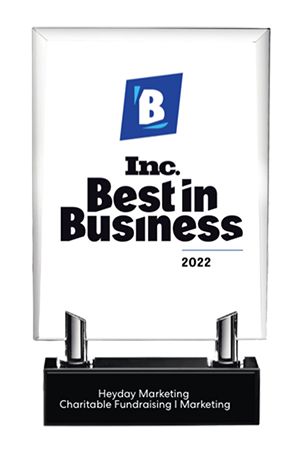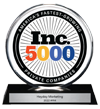CRM stands for customer relations management. It is difficult to overstate the importance of CRM for marketing and for the success of your business. While many have read or heard about CRM, some business owners may not be familiar with the intricacies of what CRM is.
Some may ask what a CRM is, and the answer to this is rather complex. While there is a simple definition, the features and benefits of CRM are much more involved. CRM offers strategies for connecting with your customers in ways that build relationships. This makes for a solid customer base and one that you can continue to expand.
It is important that you understand what CRM is because this has become one of the bedrock features of successful marketing strategies. While many focus on things like building a social media presence, something like CRM allows you to integrate that strategy into a larger set of practices.
What is CRM? What can CRM do for marketing? And how can you integrate CRM into your present marketing strategies? This guide will give you the basic information on CRM.
What is a CRM?
CRM stands for customer relationship management. CRM consists of software that tracks and records customer interactions. Marketers use CRM to create personalized communications, generate content, and expedite the sales process.
CRM has historically been seen as part of the sales division of a business. Sales representatives use these tools to track leads, prospects, and customers. CRM for marketing was not used for much more than generating email lists.
However, marketers have begun to see the marketing potential of CRM. For one thing, it is a central site for all your customer and lead data. This is vital information for marketing. CRM makes it possible to segment your customer base. This means you can send emails and other content based on more significant data than a general list of customers. For example, your email marketing can be made relevant to specific locations and geographic regions.
Marketers can also use CRM to optimize marketing campaigns. The data collected and stored in CRM makes marketing campaigns much more efficient and effective.
What can a CRM do for Marketing?
One of the primary insights of marketers for using CRM is to recognize that marketing is about much more than single and isolated interactions. Marketing is about building relationships, and this is the primary purpose of CRM.
Ways that CRM has fueled marketing campaigns include:
Email marketing
You can use CRM to segment your email lists based on any data points like location, page interactions, and other criteria. This means you can add extra dimensions of personalization to your direct email marketing by making your emails more relevant to customer data.
CRM can also help you save time with your email marketing by allowing you to export data and import it to your email provider. This consolidates your workload and also helps you stay compliant with CAN-SPAM laws.
CRM for social media marketing
By pairing your CRM with your social media, you can see what kinds of things your customers are interacting with and determine how best to position your social media content. Social media works as a form of interaction. It is not enough to keep providing the content. CRM can give you a full view of things like hashtags, influencers, and audience segments that your customers are engaging in. CRM makes it possible to provide content that addresses customers’ interests and needs.
Digital ads and CRM
CRM allows you to target your audience with digital ads that go directly to things that are of interest to them. While it is great to generate data from outside sources, CRM offers a first-hand view of what your customers like. This means digital ads are targeted in ways that no other perspective can provide.
You can, for example, determine a specific customer segment that is interested in one specific product or service. You can then generate digital ads that target this audience with the things they are looking for.
How Does CRM Make Sales and Marketing Easier?
CRM collects specific data from your customer base. This is not a survey of potential customers and people who have engaged with your social media. CRM uses data from people who have engaged your brand.
CRM has long been used by sales divisions to follow up with people who are interested in a product. This makes the sales process easier since salespeople are working with a customer base who has experience with your brand.
These same processes can make marketing much easier. Again, this is data generated from customers rather than something like market research. All of your marketing strategies can now be highly focused on your customer base.
Different ways CRM can benefit your business
CRM is already working for many businesses. Marketers know how to utilize the information from CRM software to help boost sales. Some of the ways CRM can help your business include:
- Increase revenue
- Manage your sales pipeline
- Catch and nurture leads
- Send better marketing campaigns
- Manage your team
- Run customer service reports, and,
- Analyze data.
How can a CRM improve marketing campaigns?
CRM software can help automate data collection and data analysis. This means your marketing team can personalize service for your customers, and this is a much more effective mode of marketing
CRM software also offers you direct insight into your customers and target audiences. This means your marketing campaigns can target things of specific interest to your customers. These kinds of marketing strategies lead to conversions.
CRM Campaign Examples
CRM can work for every phase of your marketing campaigns. Some examples of how CRM works for your business include:
Top of the Funnel (Awareness) Campaigns
Top funnel marketing usually involves targeting prospective customers who are not yet aware of your brand. This involves engaging these potential customers with various types of content. The goal here is to generate qualified leads that can be followed at different stages of the funnel. Examples include:
- Blog posts: how-to guides, buyer’s guides, and listicles
- Social media: to present thought leadership and provide company updates
- Videos: to entertain and educate viewers about your brand
- Infographics: containing plenty of stats and quotes
- Emails: to introduce your brand or promote an event
- Landing pages: with an online form to capture contact information
Middle of the Funnel (Interest) Campaigns
Middle of the funnel is the stage at which marketers can begin to develop relationships with a potential customer base. The goal here is to build these relationships and get them moving toward sales.
Examples of middle of the funnel CRM techniques include:
- Case studies: real-life customer success stories
- Whitepapers: thought leadership pieces on challenges and solutions
- Landing pages: addressing FAQs of leads
- Webinars: education topics relevant to your audience
- Emails: follow-up emails providing more information on products and services
- Phone: follow-up calls to address questions and get leads to book demos
Bottom of the Funnel (Sales Decision) Campaigns
Bottom of the funnel means getting these customers into the buying phase. These customers are hot leads, and this means conversions. CRM at this phase of the funnel can boost conversion by as much as 300 percent.
Examples include:
- Demo: a dedicated session to demonstrate the product or service to a prospect
- Free trial: a limited-time trial period for a prospect to test the product themselves
- Special offer: time-limited promotion to get prospects over the line
- Testimonials: sharing genuine feedback and quotes from existing customers
How to pick the right CRM for Marketing
Some important things to consider when choosing CRM for your business include:
Identify your needs
Do I need help with lead generation? Are leads getting stuck at some point in the funnel? Do you need help with contact data? These are the kinds of things you should consider when thinking about what you need from CRM.
Most important features of CRM
The main features to think about with CRM include:
- Contact management
- Sales pipeline visualization
- Marketing capabilities
- Social CRM capabilities
- Visual dashboards & reporting
- Sales automation
- Email marketing automation
- Integrations with other tools in your tech stack
Plan your budget
You need to understand your own budgetary limitations. You do not want your investment in CRM software to cripple other areas of your business. The goal is to use CRM to grow your business, not to add additional strain.
Best Marketing CRMs of 2023
Some of the top CRM packages for 2023 include:
Offers flexible CRM software, works great for small businesses, and even offers a 14-day free trial.
Offers sales and marketing automation, contact, deal, and task management. And a 14-day free trial.
Claim that users close 28 percent more deals than competitors. 24/7 live support on all plans. Trello, Slack, and Team integration.
Designed for small businesses in mind to help them grow their bottom line without the growing pains.
CRM Best Practices in 2023
To get the most out of CRM and marketing, there are some best practices to consider:
Take your time with implementation:
Many of the CRM software packages claim that they are ready to use and easy to implement. To get the most out of this software, allow your marketing team to get fully acquainted with how it works. Rushing this end of these can compromise every other aspect of your CRM marketing strategies.
Set a standard for your data
This allows everyone to understand the targeting goals and to analyze metrics that will meet these goals. You can do things like search social media and gather contact information to generate leads, for example.
Work toward automation
The key feature of using CRM for marketing is to allow it to automate many of the more tedious tasks. This also streamlines these tasks and makes the marketing campaigns more efficient. Things like workflows, chatbots, and other automated messaging services can be further automated with CRM.
Need help integrating your business with a CRM?
Lead generation is an ideal use of CRM for marketing, and HeyDay Marketing can help you implement this asset for your business.
While most of the CRM software packages advertise that they can be put to work easily, it is in your company’s best interests to maximize your use of CRM for marketing. HeyDay Marketing has the insight and professional capabilities to integrate CRM into the process of lead generation. This will begin the larger process of using CRM software through the entire funnel toward conversions and sales.
HeyDay Marketing can provide you with the best marketing services and this includes the implementation of CRM. From data collection to lead generation, the marketing professionals at HeDay Marketing Services can help you maximize CRM for marketing toward growing your business.
Wrapping things up
CRM software has been in use in sales for quite a long time. Marketing professionals have now begun using CRM software to assist in marketing strategies and campaigns. Because CRM can generate data based entirely on your existing customer base, it is ideal for providing insights into marketing strategies.
CRM can help you personalize your content and messaging and base these things on the activities and forms of engagement that your customers are already doing. This means pinpointing your messaging toward customer interests. CRM takes data generated by your customers and makes it available to marketing professionals for further messaging and content.
What is more, CRM can help automate things like messaging while maintaining content that is specifically tied to your customer base. Things like email content and social media content can be made more engaging by utilizing the data generated by CRM.
In the final analysis, CRM can work at every stage of the funnel. From lead generation to conversions, CRM marketing strategies have been shown to work. This means sales and increased visibility for your brand. To get the most out of CRM for marketing, allow the marketing professionals at HeyDay Marketing to integrate CRM into your marketing campaigns.







